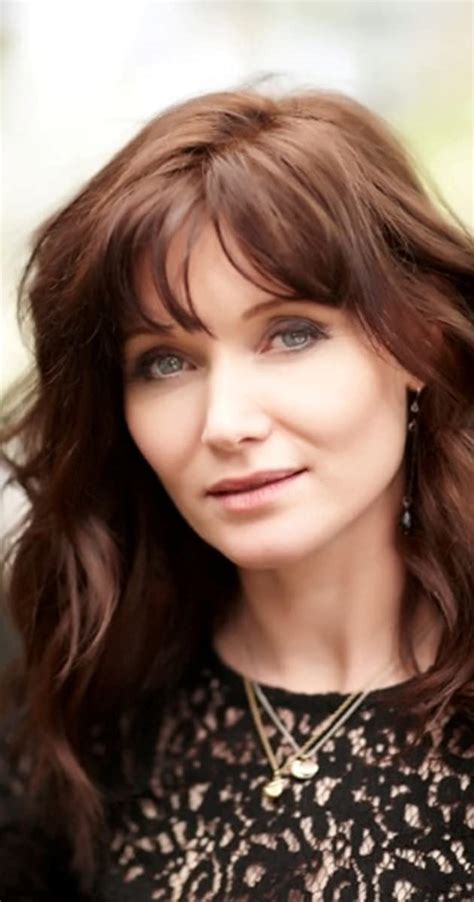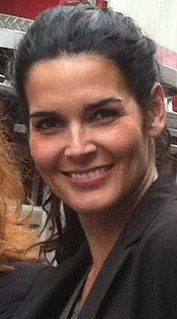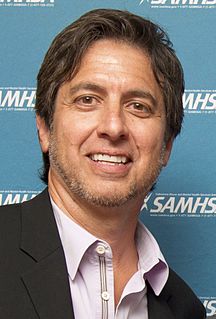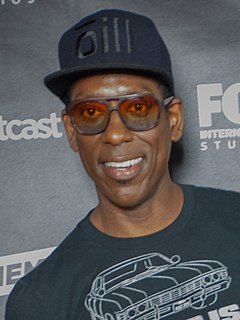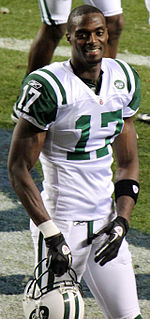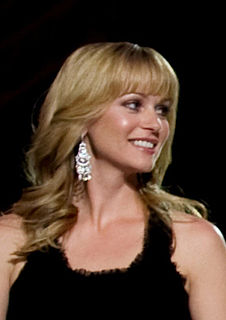A Quote by Lore Segal
Did the nineteenth-century novelists create more generously than we do now? In a general reading of contemporary work, do you see a lot of new and different characters, or is it the same character who is a stand-in for the writer? And it's interesting enough, but it's a weakness I think. We are much more self-revealing and less able to produce new people over and over again.
Related Quotes
I think the unemployment rate for actors is pretty much the same in Sydney, London and New York. In all three cities, there are more actors than there are jobs. But I do think that there are far more acting opportunities in London and New York than in Sydney, where there are approximately seven actors that you see over and over again in every play.
I think the thing that made this stand out the most was just the fact that there's a lot more character to these characters. We see their back stories and we see their present situations, and that was a lot more interesting than just the regular procedural with four heads standing around a body, spelling it out for you. It's a lot more of a roller coaster ride.
Yeah, Jacob transforms a lot in 'New Moon.' Not only physically, but mentally and emotionally as well. So it was a matter of getting to the gym and eating the right foods and a lot of it. But also, reading and studying the book and my character over and over and over again so I could have his character down as well.
Have you come over time to think that you know more now than you did when you were young, know less now than when young, know now there is so much more to know than you knew there was to know when young that it is moot whether you think you knew more then than now or less, or do you now know that you never knew anything at all and never will and only the bluster of youth persuaded you that you did or would?
I don't think there's a ton of new new stuff about doing a sitcom or doing a multi-camera show, but they work. They're fun, and they're energetic, and they're short. And when you fall in love with one - like, I will watch Seinfeld, I'll watch Will & Grace, all those reruns. I just can never get enough. I watch the same ones over and over and over. I watch the same movies that make me laugh over and over and over. I was hoping to be part of something like that.
I believe that to create real-seeming characters, the writer must be willing to go on a voyage of self-exploration. It can be revealing and even painful to explore your own weakness, but it gives you genuine emotion. Characters in fiction come alive because of the believability of their emotional lives and that is what I strive to create.
Now, I have the opportunity to catch more balls and I relish the opportunity, ... Its something Ive always wanted. I think I needed a change. It was like Groundhog Day, doing the same thing over and over again. What better place could I be than to come to New York and try to put everybody to the side and say, This is who I am.
I'm character-driven. If it's a great character and something different; because I find that a lot of the times you do get pigeon-holed, you do get the same characters over and over again because that's what producers are comfortable with. They've seen you do it, they know you can do it. I'm kind of getting a little stir crazy.
I feel like the older I get, the more I start to think about life in general. All the clichés that people tell you, the ones that you hear over and over and over again, there's a reason they're cliché, there's a reason you hear them over and over again, because it's all true. As much as you don't wanna hear it, it's true. You'll find out later on, like "Man, they're all right."
It is a sobering fact that the prominence of central banks in this century has coincided with a general tendency towards more inflation, not less. [I]f the overriding objective is price stability, we did better with the nineteenth-century gold standard and passive central banks, with currency boards, or even with 'free banking.' The truly unique power of a central bank, after all, is the power to create money, and ultimately the power to create is the power to destroy.
The book was long, and difficult to read, and Klaus became more and more tired as the night wore on. Occasionally his eyes would close. He found himself reading the same sentence over and over. He found himself reading the same sentence over and over. He found himself reading the same sentence over and over.
It seems to me that the novel is very much alive as a form. Without any question, every epoch has its own forms, and the novel nowadays cannot resemble that of the nineteenth century. In this domain all experiments are justified, and it is better to write something new clumsily than to repeat the old brilliantly. In the nineteenth century, novels dealt with the fate of a person or of a family; this was linked to life in that period. In our time the destinies of people are interwoven. Whether man recognizes it or not, his fate is much more linked to that of many other people than it used to be.

